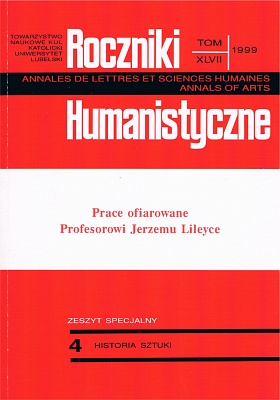„Dream is the Thought's Sunday”
Abstract
Concentration and dream – the two “natural states and unquestionable needs of the human mind” distinguished by Władysław Tatarkiewicz, today are losing, as it seems, their anthropological, culture-genic and value-genic significance. Since ancient times they have been supplying artistic creativity and theoretical contemplation with themes. Contemporary erosion and degradation of dream is accompanied by a parallel decline of ability in mature (self)reflection. Creativity and the recipient's contact with culture have assumed a commercial and consumption character. Pressure of mass culture proves the most destructive in this respect – with its conventional and provisional character, its trivial permissivism and hedonism, without care for refinement of form and fastidiousness that for years have been features of the so called “high culture”.
Pointing to these alarming symptoms the author of the essay confines herself to asking the question: will the authors of tomorrow's culture, especially artists, be able to find Lucretius' “temples of serenity” and “places full of charm” favouring creative fantasy, to derive “materials for the future and images for the talent”, as a hundred years ago Henri-Frédéric Amiel wrote?
Copyright (c) 1999 Roczniki Humanistyczne

This work is licensed under a Creative Commons Attribution-NonCommercial-NoDerivatives 4.0 International License.





